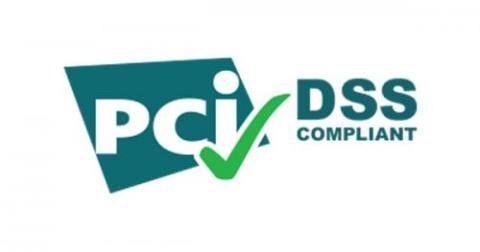
What is PCI DSS?
Payment Card Industry Data Security Standard (PCI DSS) is a set of guidelines that card companies use to protect the security of transactions. The primary purpose of the standard is to reduce the risk of identity theft and fraud. The PCI DSS is a standard developed to help protect the security of cardholder data for organizations that handle, process, or transmit credit card information.
12 Requirements of PCI DSS
PCI DSS applies to all entities that store, process, or transmit cardholder data. It covers technical and operational system components that are connected to cardholder data. The PCI DSS requirements are both operational and technical, and their main goal is always to protect cardholder data.
The 12 requirements of PCI DSS are:
- Install and maintain a firewall to protect cardholder data.
- Do not use defaults provided by your vendor when setting security parameters on your system.
- Protect stored cardholder data
- Encrypt transmission of cardholder data across open, public networks
- Use and regularly update anti-virus software or programs
- Develop and maintain secure systems and applications
- Restrict access to cardholder data by businesses need to know
- Assign a unique ID to each person with computer access
- Restrict physical access to cardholder data
- Track and monitor all access to network resources and cardholder data
- Regularly test security systems and processes
- Maintain a policy that addresses information security for all personnel
PCI DSS Compliance Level
The first and most important step you have to take is to determine what level of PCI DSS compliance you are currently at. There are four levels of PCI DSS compliance for commercial and service businesses that accept credit cards as a means of payment.
4 Levels of PCI DSS Compliance are:
- Level 1: Merchants processing over 6 million card transactions per year.
- Level 2: Merchants processing 1 to 6 million transactions per year.
- Level 3: Merchants handling 20,000 to 1 million transactions per year.
- Level 4: Merchants handling fewer than 20,000 transactions per year.
PCI DSS Assessment
A PCI assessment is an audit to confirm that a business is following the Payment Card Industry Data Security Standard. This standard sets guidelines for the security of merchants who accept, process, store or transmit card information.
Who can perform PCI DSS assessments?
A PCI DSS compliance assessment is the process of evaluating an organization's security policies, procedures, and network configurations against each applicable control in the standard. A PCI Qualified Security Evaluator (QSA) shall determine during the evaluation whether the merchants meet the PCI DSS 12 requirements either directly or via a control that provides a level of defense similar to PCI DSS requirements.
Benefits of PCI DSS
It is important for companies to follow PCI standards to protect their financial information. Following are the Benefits of PCI DSS Compliance:
- Builds trust with your customers
- Avoid fines and penalties
- Prevents data breaches
- Helps you to meet global standards
- Provides a baseline for other regulations
Conclusion
PCI DSS compliance is a continuous process that requires regular assessments and evaluations of existing systems and practices. Starting with PCI DSS compliance can be confusing and overwhelming. You can use third-party products and services to support your PCI DSS compliance strategy. However, the use of third-party payment gateways is a safer option as it removes part of the PCI DSS compliance burden from your company, but at the same time do not have to be completely dependent on them because in case of a data breach the liability lies on a merchant. You are still responsible for your safety and should continue to test, reinforce and update your safety with time.
